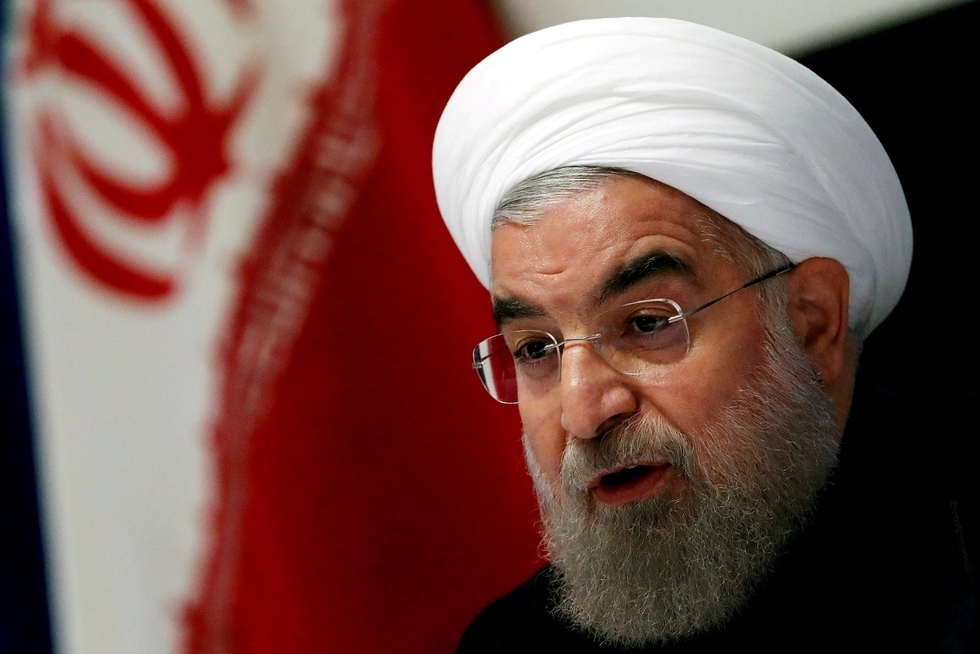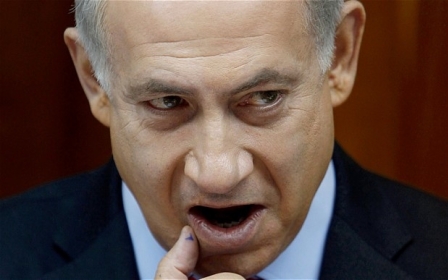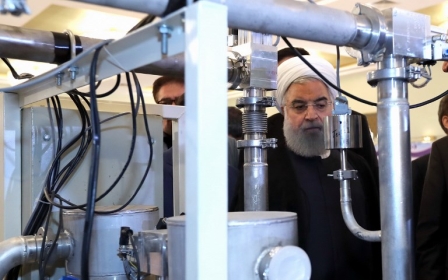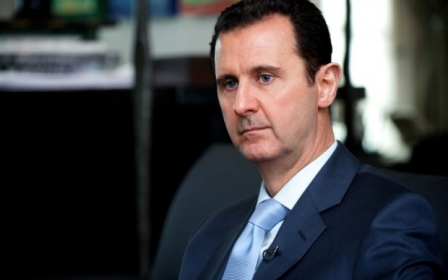Iran: We will stay in nuclear deal, even if US withdraws

Iranian President Hassan Rouhani said on Monday that Iran would remain committed to the 2015 nuclear deal even if the United States pulled out, as US President Donald Trump has threatened to do on 12 May.
Speaking live on Iranian state TV, Rouhani said that removing “America's mischievous presence” from the deal designed to prevent Iran from developing nuclear weapons would be acceptable if other signatories remain committed.
US President Donald Trump, a long-time critic of the deal reached between Iran and six international powers in 2015 before he took office, has threatened to pull out by not extending sanctions waivers when they expire on 12 May, unless European signatories of the accord fix what he calls its “flaws”.
'Getting rid of America's mischievous presence will be fine for Iran'
- President Hassan Rouhani
Under the agreement with the US, France, Germany, the UK, Russia and China, Tehran has strictly limited its uranium enrichment capacity so that it cannot be used to develop atomic bombs. In exchange, Iran has received relief from sanctions, most of which were rescinded in January 2016.
Rouhani’s comments came as European signatories desperately attempted to salvage the agreement. French Foreign Minister Jean-Yves Le Drian said on Monday that France, the UK and Germany would also keep to the deal if the United States leaves.
"We are determined to save this deal because this accord safeguards against nuclear proliferation and is the right way to stop Iran getting a nuclear weapon," Le Drian said.
'Iran will fiercely resist'
In the strongest indication yet that Iran would respect the deal if America withdrew Rouhani said: "We are not worried about America's cruel decisions... We are prepared for all scenarios and no change will occur in our lives next week.”
"If we can get what we want from a deal without America, then Iran will continue to remain committed to the deal. What Iran wants is our interests to be guaranteed by its non-American signatories... In that case, getting rid of America's mischievous presence will be fine for Iran."
Rouhani said the Islamic Republic had been preparing for every possible scenario and warned on Monday that Tehran would fiercely resist US pressure to limit its influence in the Middle East.
"If they want to make sure that we are not after a nuclear bomb, we have said repeatedly that we are not and we will not be," said Rouhani, who pushed for the nuclear accord to ease Iran's isolation.
"But if they want to weaken Iran and limit its influence whether in the region or globally, Iran will fiercely resist."
Iranian Foreign Minister Mohammad Javad Zarif warned that Tehran's "fierce reaction to a violation of the nuclear deal with major powers will not be pleasant for America", state TV reported.
Tehran has made repeated threats to walk away if Trump does, but several Iranian officials told Reuters news agency last week that as long as Iran was not excluded from the global financial and trading system, it could consider respecting the accord.
Diplomats say Tehran wants the deal to remain intact because it fears revival of domestic unrest at economic hardship, as happened the last time sanctions were in place.
German Foreign Minister Heiko Maas said it was clear that the agreement made the world more secure and that there was a risk of escalation were it to be cancelled.
"We don't think there is any justifiable reason to pull out of this agreement and we continue to make the case for it to our American friends," Maas said during a joint news conference with Le Drian.
"We'll deal with the [US] decision but like Jean-Yves said, we want to adhere to this agreement," Maas added.
A British diplomatic push
Rouhani's comments came as UK Foreign Secretary Boris Johnson was expected to urge the Trump administration to not "walk away" from the Iran nuclear deal, as diplomatic tensions continue to rise between Tehran and Washington.
Johnson will push for the case to keep the Iran nuclear deal during a two-day visit, when he will meet Vice President Mike Pence and national security adviser John Bolton.
In an interview with Fox News Channel's Fox and Friends, which Trump is regularly known to watch, Johnson said a regional arms race could be spurred if the nuclear deal was to end and Iran was to become a nuclear power.
"You're going to have the Saudis wanting one, the Egyptians, the Emiratis," he said. "It's already a very, very dangerous state at the moment. There doesn't seem to me at the moment to be a viable military solution."
Writing in the New York Times, Johnson described the deal as a means to "counter Tehran's aggressive regional behaviour" and urged Trump to "improve the handcuffs" on Iran "rather than break them".
The discussions in Washington will centre on Iran, North Korea, Syria and other issues, according to the UK foreign ministry, and come ahead of a visit to London by Trump in July.
"On so many of the world's foreign policy challenges the UK and US are in lockstep," Johnson said in a statement.
"The UK, US, and European partners are also united in our effort to tackle the kind of Iranian behaviour that makes the Middle East region less secure - its cyber activities, its support for groups like Hezbollah, and its dangerous missile programme, which is arming Houthi militias in Yemen," he said.
New MEE newsletter: Jerusalem Dispatch
Sign up to get the latest insights and analysis on Israel-Palestine, alongside Turkey Unpacked and other MEE newsletters
Middle East Eye delivers independent and unrivalled coverage and analysis of the Middle East, North Africa and beyond. To learn more about republishing this content and the associated fees, please fill out this form. More about MEE can be found here.




